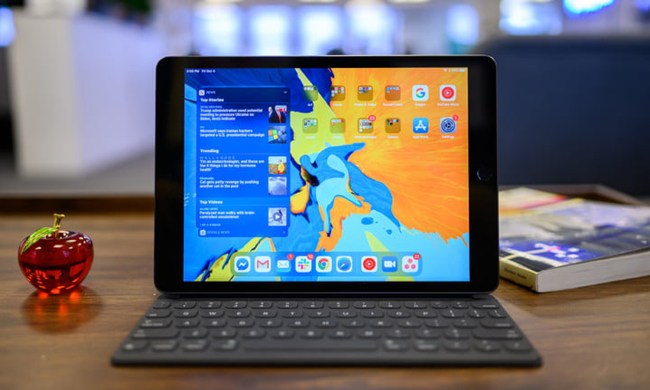 Last month Apple filed a lawsuit accusing Samsung of copying its iPhone and iPad design, most specifically with its Galaxy lineup. Samsung responded with a countersuit, claiming it was Apple and its iPhone and iPad that infringed on various patents, and that the company must stop doing so as well as compensate Samsung.
Last month Apple filed a lawsuit accusing Samsung of copying its iPhone and iPad design, most specifically with its Galaxy lineup. Samsung responded with a countersuit, claiming it was Apple and its iPhone and iPad that infringed on various patents, and that the company must stop doing so as well as compensate Samsung.
Samsung lost, and now it appears that it will be required to pony up to Apple for future products. A court document filed May 18 reveals that federal judge Lucy Koh has given the company 30 days to hand over the Galaxy S II, Galaxy Tab 8.9, Galaxy Tab 10.1 (all three of which are unreleased), Infuse 4G, and DROID Charge to Apple so that the Cupertino giant can decide if it wants an early injunction. Koh also said that since Samsung has begun advertising these products, it cannot argue that giving Apple access to them is unacceptable. She also quoted a Samsung executive who earlier this year said, “We will have to improve the parts [of the Galaxy Tab 10.1] that are inadequate. Apple made it [the iPad 2] very thin” as a reason that Apple may be justified in believing its competitor is imitating its own devices.
Koh did attempt to stay neutral however. “Although the Court expresses no opinion on the merits of Apple’s claims, the Court notes that Apple has produced images of Samsung products and other evidence that provide a reasonable basis for Apple’s belief that Samsung’s new products are designed to mimic Apple’s products.
The court document says that this access will give Apple time to “take early action to stop the allegedly infringing activity before Samsung’s new products become established in the marketplace.” It also says the court agrees that Apple deserves “limited expedited discovery” – something Apple had not requested, but authorities granted.
It isn’t only the devices themselves that Samsung is being accused of copycatting: The packaging is also being called into question and called “directly relevant to Apple’s trademark, trade dress, and design claims” which can create “consumer confusion.” But the court doesn’t want to appear one-sided, and goes on to acknowledge these actions will seriously aid Apple, and that it understands Samsung’s concerns about “the sensitive nature of the information sought.” Because of this, the court will not require a Samsung executive to testify, despite Apple’s request. It also will not ask Samsung to produce “documents relating to any copying of design elements, or attempts to design around Apple’s intellectual property relating to, the iPhone 4, iPad, and iPad 2,” calling this request “broad and somewhat vague” on Apple’s part.
While it’s keeping any concrete, insider company information out of Apple’s hands, granting the company access to arguably its most able competitor’s forthcoming devices is a huge coup for Apple. Suppose that Apple is unable to find any evidence that Samsung has been using its’ innovations as a blueprint – which is a big, big “suppose.” Given the accusations and evidence Apple has produced thus far, we’re certain it will. But if not, the company is being given even the slightest of slight edges over Samsung by getting the first look at its newest technology, although Apple’s legal team will be denied access to the devices.
It’s an interesting complication for the two companies, who have a business relationship: Apple could potentially spend $7.8 billion on components from the manufacturer.

